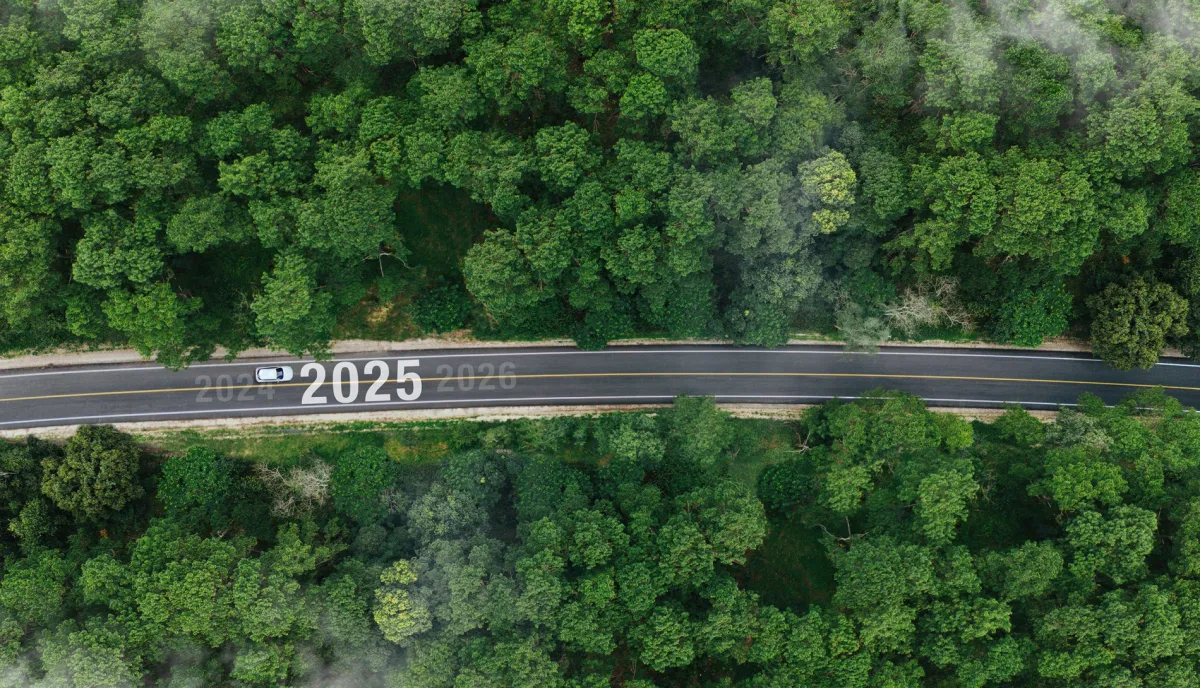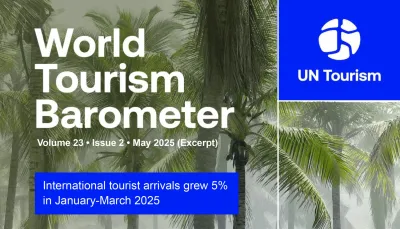Travel Booking
Artificial Intelligence (AI)
Automation
Your Roadmap to 2025: Critical Issues and Unexpected Trends

Travel Booking
Artificial Intelligence (AI)
Automation
As the world welcomes 2025, the travel industry is bracing for another transformative year. The good news? Travel is thriving. People are seeking new experiences, venturing to colder destinations, and embracing a world that is becoming more digitally interconnected. But with growth comes challenges, and while many are focused on the usual suspects—sustainability, AI, and personalization—there are deeper issues that need addressing and trends that remain underexplored.
This guide highlights the biggest problems yet to be solved in the travel industry and the emerging trends that could reshape travel in ways few are anticipating.
Challenges That Need Fixing
1. Transparency in Travel Booking
Booking travel remains a complex and often frustrating process. Hidden fees, fluctuating prices, and an overload of options make it difficult for travelers to book with confidence. The industry still struggles to offer full transparency, leaving many consumers overwhelmed and uncertain.
2. A True Digital Traveler ID System
The promise of a universal digital traveler ID remains largely unrealized. While biometric verification and digital passports are emerging, a fully integrated, seamless identification system that works across borders is still out of reach.
3. Lack of Data Connectivity
Despite advancements in AI and automation, data connectivity across travel platforms remains fragmented. Travelers still face the hassle of re-entering information multiple times across airlines, hotels, and car rental services, preventing a truly seamless experience.
4. The Tech Deficit and Legacy System Struggles
The travel industry’s reliance on outdated legacy systems is becoming a major roadblock to innovation. Many airlines, hotels, and travel platforms operate on aging infrastructures that limit their ability to implement new technologies efficiently.
5. Over-Tourism and Sustainability Balance
As travel demand surges post-pandemic, many destinations are grappling with over-tourism. The challenge is finding a balance between economic growth and environmental sustainability while ensuring local communities benefit from tourism without being overwhelmed.
6. Travel Industry’s Influence on Policy
Despite its size and economic impact, the travel industry’s influence on government policies and global regulations remains relatively small. Addressing taxation, infrastructure investment, and climate policies requires stronger advocacy from industry leaders.
7. Lack of Serendipity in Travel Due to Social Media
A staggering 80% of travelers visit just 10% of the world’s top destinations, largely driven by social media trends. The loss of discovery and spontaneity in travel is leading to over-commercialization of certain locations while hidden gems remain unexplored.
8. Manpower Shortages and Labor Challenges
Aviation, hospitality, and tourism sectors are still struggling with labor shortages. As demand rises, the industry must address working conditions, automation integration, and training programs to sustain a skilled workforce.
9. Personalization and Efficiency in Travel Fulfillment
While personalization is a growing trend, there is still room for improvement in real-time trip adjustments. Whether it’s a smoother check-in process or a more responsive itinerary modification system, automation can enhance the traveler experience significantly.
10. Over-Reliance on Tech Giants for Customer Acquisition
Airlines, hotels, and travel platforms remain heavily dependent on FAANG (Facebook, Apple, Amazon, Netflix, Google) for customer acquisition. This reliance limits direct customer engagement and increases costs for travel brands.
Trends No One Is Talking About—Yet
1. The Rise of “Silent Travel”
Travelers are increasingly seeking peace and solitude, opting for off-the-grid destinations, digital detox retreats, and minimalist travel experiences that prioritize mindfulness over connectivity.
2. The Surge of All-Inclusive Travel
As travelers prioritize convenience and value, the demand for all-inclusive resorts, cruises, and tour packages is set to rise, simplifying travel planning and budgeting.
3. Micro-Sabbaticals
Short-term career breaks of a few weeks or months are becoming a trend, as professionals seek time to recharge without committing to a full sabbatical.
4. Corporate Travel Without Expense Reports
Automation and AI are poised to eliminate the need for tedious expense reporting in business travel, making the process seamless through real-time tracking and automated reimbursement.
5. Climate-Responsive Tourism and Migration
Rising global temperatures and extreme weather events are shifting travel patterns. Destinations with cooler climates are seeing increased demand, while some coastal and island destinations are preparing for long-term shifts in tourism due to climate change.
6. The Diminishing Returns of LLM Training in AI
As AI continues to evolve, the industry is starting to see the limitations of large language models (LLMs). The next phase of AI in travel will focus on hyper-specific training for niche applications rather than general AI solutions.
7. AI’s Role in Automating Routine Tasks
From chatbots handling customer service inquiries to AI optimizing flight schedules, automation is freeing up human workers to focus on higher-value tasks, reshaping how airlines, hotels, and travel agencies operate.
8. Experience-First Travel Planning
More travelers are choosing the experience first—such as a unique adventure or wellness retreat—before even considering flights or accommodations. Travel brands will need to adapt their marketing strategies to this shift.
9. Cybercrime in Travel
As travel becomes increasingly digital, cybersecurity threats are growing. Airlines, hotels, and booking platforms will need to ramp up efforts to protect consumer data from breaches and fraud.
10. The “Less is More” Travel Movement
Consumers are moving away from jam-packed itineraries and focusing on fewer, more meaningful travel experiences, emphasizing quality over quantity.
11. Predictive Travel Curation
AI-powered platforms will anticipate travel needs based on life events—such as milestone birthdays or work sabbaticals—and suggest personalized itineraries before travelers even start planning.
12. The Global Backlash Against Rapid Change
As technology and travel innovation accelerate, there is a growing movement pushing back against constant digital disruption, advocating for more human-centered travel experiences and less reliance on automation.
Final Thoughts: Preparing for the Future of Travel
While many of these trends will take time to fully develop, they signal a shift in traveler behavior, industry priorities, and technological advancements. Addressing ongoing challenges while staying ahead of these under-the-radar trends will be crucial for travel brands looking to remain competitive in 2025 and beyond.
May this serve as your guide to the year ahead. Whatever 2025 may bring, staying informed and adaptable will be key to navigating the evolving landscape of travel.



